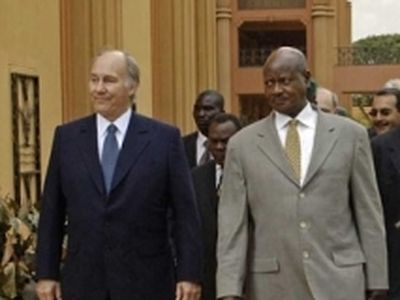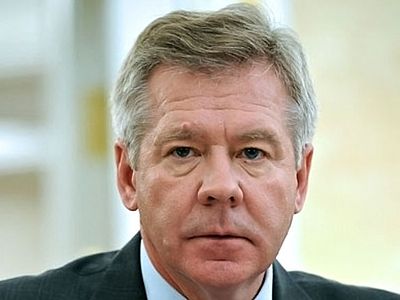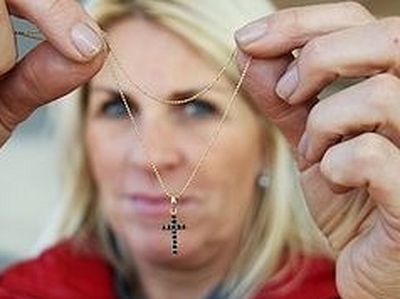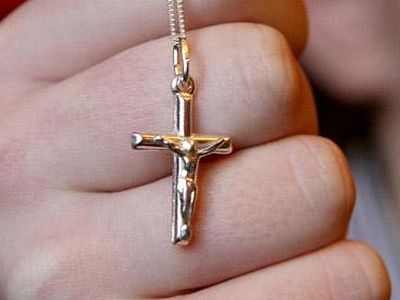Moscow, January 16, 2014
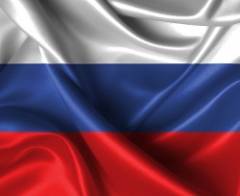
Since the bill was signed into law, Russia has been the target of a massive international campaign, spearheaded by the European Union and homosexual campaigners at the EU, to overturn it.
A report on human rights to the EU by the Russian government, accuses the EU of “the dissemination of their neo-liberal values as a universal lifestyle for all other members of the international community.”
“This is particularly evident in their aggressive promotion of the sexual minorities' rights,” the report said. “Attempts have been made to enforce on other countries an alien view of homosexuality and same-sex marriages as a norm of life and some kind of a natural social phenomenon that deserves support at the state level.”
This approach, it said, “encounters resistance not only in the countries upholding traditional values, but also in those countries which have always taken a liberal attitude towards queers.”
The 150-page report, titled “Report on the Human Rights Situation in the European Union,” notes that massive opposition – with rallies of up to a million people – against France’s “gay marriage” bill were ignored or condemned by the French Socialist government as well as the EU. “Suffice it to recall the protest reaction of a major part of the French society to the decision on legalization of same-sex marriages in the country,” it said.
It says that while the EU’s obsession with promoting homosexuality has led to suppression of civil liberties, “xenophobia, racism, violent nationalism, chauvinism and neo-Nazism” are growing unchecked across the continent.
“In this context, it is still clear that the existing system of protection of fundamental human rights and freedoms in the EU remains ineffective and [flawed],” the report said.
“In the context of financial and economic crisis that continues in Europe, grave violations of the rights of minorities, refugees and migrants are increasing, and social rights of citizens are being infringed upon…The facts proving systematic and mass violations of privacy and infringements on the freedom of speech and media have caused a special concern,” the report said.
At the same time, Svetlana Zhurova, the a gold-medal figure skater and Russian MP and the honorary “mayor” of Sochi’s mountain Olympic village, has defended the law. Zhurova, who voted in favor of the law, told Russian TV channel Dozhd that it was a matter of protecting minors.
“I think they just shouldn't show a cartoon on TV — excuse me, I have two boys — where a king loves another king,” she said to Dozhd, which was repeated in English on Buzzfeed.
The Advocate, a homosexual magazine, reported that Zhurova has also said that other politicians, who will not speak out publicly, have contacted her “to let her know they secretly support” the law.
The law, which has raised fury in other countries, particularly Britain, was passed first on a smaller scale in historic St. Petersburg and nine other Russian jurisdictions, outlaws the “propaganda of non-traditional sexual relations” to minors, including sex of any kind outside of marriage. The law effectively outlaws any observance of the “Gay Pride” movement that dominates many jurisdictions in Europe. The country has also moved to ban the adoption of Russian orphans outside Russia by homosexuals in countries with “gay marriage” or civil union laws.
Britain has pledged to send to the Sochi games the government minister responsible for passing the “same sex marriage” law, as a deliberate act of provocation. The British government announced yesterday that Culture Secretary Maria Miller will attend on Britain`s behalf. “Maria Miller has been a staunch champion of gay equality here in Britain," said Sam Dick, Director of Campaigns, at Stonewall the country’s leading homosexual political lobby.
In addition, the U..S has announced it is deliberately including three openly homosexual athletes in their delegation, and government officials from Germany, France, and the United States have said they will boycott the games.
While it continues to be the target of homosexual supporters outside the country, however, the law enjoys strong support from the Russian public. A 2013 survey found that 74 percent of Russians believe homosexuality should not be accepted by society, up from 60 percent in 2002.
Vitaly Mutko, Russia’s sports minister, accused the international media of fomenting the backlash against the law, saying that up to 88 percent of the Russian population supports it. He and the Russian government continue to insist that it will in no way affect the upcoming Sochi Winter Olympics.

